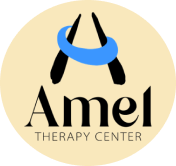Looking for a flexible treatment option that allows you to maintain your daily routine while getting the support you need? Intensive Outpatient Programs (IOPs) might be the answer. With IOPs, you can receive comprehensive care for addiction or mental health issues without having to put your life on hold.
Unlike inpatient programs that require you to stay at a facility, IOPs provide structured therapy sessions and support while allowing you to continue living at home. This contrast between intensive treatment and maintaining your regular life is what makes IOPs an attractive option for many individuals seeking recovery. Discover the benefits of intensive outpatient programs and how they can help you on your journey toward wellness.
Understanding IOP
Intensive Outpatient Programs (IOP) are designed to provide comprehensive treatment for individuals with substance abuse or mental health issues. These programs offer a structured and supportive environment that allows you to receive the necessary care while still maintaining your daily responsibilities.
In an IOP, you will typically attend therapy sessions several times a week, ranging from three to five days. These sessions can last anywhere from three to six hours per day, providing you with ample time for individual counseling, group therapy, and educational workshops. The length of an IOP program can vary based on your specific needs and progress.
How IOP Differs from Other Treatment Options
Unlike inpatient programs that require you to stay at a treatment facility 24/7, IOP allows you to live at home and continue with your regular activities. This flexibility is particularly beneficial if you have work or family commitments that cannot be put on hold.
Another key difference between IOP and other treatment options is the level of support provided. In an IOP, you have access to a team of experienced professionals who will guide and support you throughout your recovery journey. They will help you develop coping strategies, address underlying issues, and provide ongoing guidance as you transition back into your everyday life.
The Intensive Nature of IOP Schedules
IOP schedules are specifically designed to provide intensive treatment while accommodating your daily obligations. The frequency and duration of therapy sessions ensure that you receive the necessary support without disrupting your work or personal life too much.
The intensive nature of IOP schedules allows for more focused and concentrated therapy sessions. This means that within a shorter period of time, you can make significant progress towards overcoming your challenges. Consistent engagement in therapy helps build a strong foundation for lasting change.
Benefits of Intensive Outpatient Programs IOP
IOP programs offer several benefits in the treatment of substance use disorders. One significant advantage is their effectiveness in helping individuals overcome addiction. These programs provide a structured and supportive environment where you can receive intensive therapy and counseling while still living at home. This allows you to continue your daily activities, such as work or school while receiving the necessary treatment.
Role of Group Therapy
Group therapy plays a vital role in IOP programs and offers numerous benefits. By participating in group sessions, you have the opportunity to connect with others who are facing similar challenges. Sharing your experiences, thoughts, and emotions with peers can be incredibly therapeutic. It provides a sense of belonging and helps you realize that you are not alone in your journey towards recovery. Group therapy allows you to learn from others’ perspectives and gain valuable insights that can support your own healing process.
Successful Transition to Long-Term Recovery
One key advantage of IOP is its focus on helping individuals successfully transition to long-term recovery. Through comprehensive treatment plans, IOP equips you with the necessary tools and coping mechanisms to maintain sobriety even after completing the program. The skills learned during therapy sessions, such as relapse prevention strategies and stress management techniques, empower you to navigate life’s challenges without turning to substances for relief.
Moreover, IOP programs often provide ongoing support through aftercare services. These services may include continued individual counseling, access to support groups, and regular check-ins with your treatment team. Such support significantly increases your chances of maintaining lasting recovery.
IOP vs. Other Programs
Intensive Outpatient Programs (IOP) offer a unique approach to treatment that sets them apart from other programs. Unlike inpatient care, where you stay at a facility, IOP allows you to receive treatment while living at home. This means you can continue with your daily activities and responsibilities while getting the support you need.
Benefits of IOP over Inpatient Care
- Flexibility: One major advantage of IOP is the flexibility it offers. With outpatient programs, you have the freedom to attend therapy sessions and support groups during the day or evening, depending on your schedule. This flexibility makes it easier for you to balance work, school, or family commitments while receiving treatment.
- Cost-Effective: Compared to inpatient care, IOP tends to be more cost-effective. Inpatient programs typically require an extended stay at a facility, which can be quite costly. On the other hand, IOP allows you to receive intensive treatment without the added expense of accommodation and round-the-clock supervision.
- Duration: While inpatient care often requires weeks or even months of continuous treatment, IOP offers shorter durations with sessions typically lasting a few hours each day for several days a week. This allows you to gradually transition back into your daily life while still receiving the necessary support.
Is IOP Right for You?
IOP may be a suitable option for individuals who do not require 24/7 medical supervision but still need structured treatment and support. If you have a stable home environment and strong social support, IOP can provide the necessary tools and resources to help you overcome challenges and achieve lasting recovery.
Remember, it’s important to consult with healthcare professionals who can assess your specific needs and determine if an intensive outpatient program is the right fit for you.
Key Components of IOP
Intensive Outpatient Programs (IOPs) have several core elements that make them effective treatment options for addiction and mental health issues. One key component is the structured schedule, which allows you to receive treatment while still maintaining your daily responsibilities. This flexibility makes it easier for you to manage your recovery without having to put your life on hold.
Therapies and Skills Taught
IOP programs offer a variety of therapies and skills that are essential for your recovery journey. Among the therapies commonly used in IOP are individual counseling, group therapy, and family therapy. These sessions provide a safe space for you to explore your thoughts, emotions, and experiences with trained professionals and peers who understand what you’re going through.
In addition to therapy, IOP also focuses on teaching you practical skills that can help you cope with cravings, triggers, and stressors in a healthy way. Some of the skills you may learn include mindfulness techniques, relapse prevention strategies, communication skills, and problem-solving techniques. These skills empower you to navigate challenges effectively and build a strong foundation for long-term recovery.
Comprehensive Approach
What sets IOP apart from other programs is its comprehensive approach to addressing addiction and mental health issues. Unlike traditional outpatient programs, IOP provides more intensive treatment with multiple sessions per week. This level of care ensures that you receive the support and guidance you need during early recovery stages when relapse risks are higher.
IOP also recognizes the importance of treating co-occurring disorders or dual diagnosis. By addressing both addiction and mental health simultaneously, IOP helps individuals achieve holistic healing. The integrated approach ensures that all aspects of your well-being are taken into account so that you can experience lasting recovery.
Choosing the Right IOP
When selecting an intensive outpatient program (IOP), several important factors must be considered. First and foremost, you want to ensure that the program offers high-quality care. Look for programs with a good reputation and positive reviews from previous participants. It’s also crucial to assess the program’s success rate in relapse prevention. This information can give you confidence in the program’s effectiveness.
Another essential factor is finding an IOP that aligns with your specific needs. Consider what type of treatment approach resonates with you. Some programs may focus on cognitive-behavioral therapy, while others may emphasize holistic healing or individual counseling sessions. Think about what will work best for you and your unique situation.
The Importance of Personalized Care
One of the key benefits of choosing the right IOP is the personalized care it provides. Unlike other treatment options, IOPs are designed to cater to your individual needs and circumstances. The program should take into account factors such as your substance abuse history, mental health conditions, and any other relevant personal details.
Personalized care ensures that you receive tailored treatment plans and interventions that address your specific challenges and goals. This level of customization allows for a more effective recovery journey, as it targets the root causes of addiction and helps develop coping strategies that work specifically for you.







